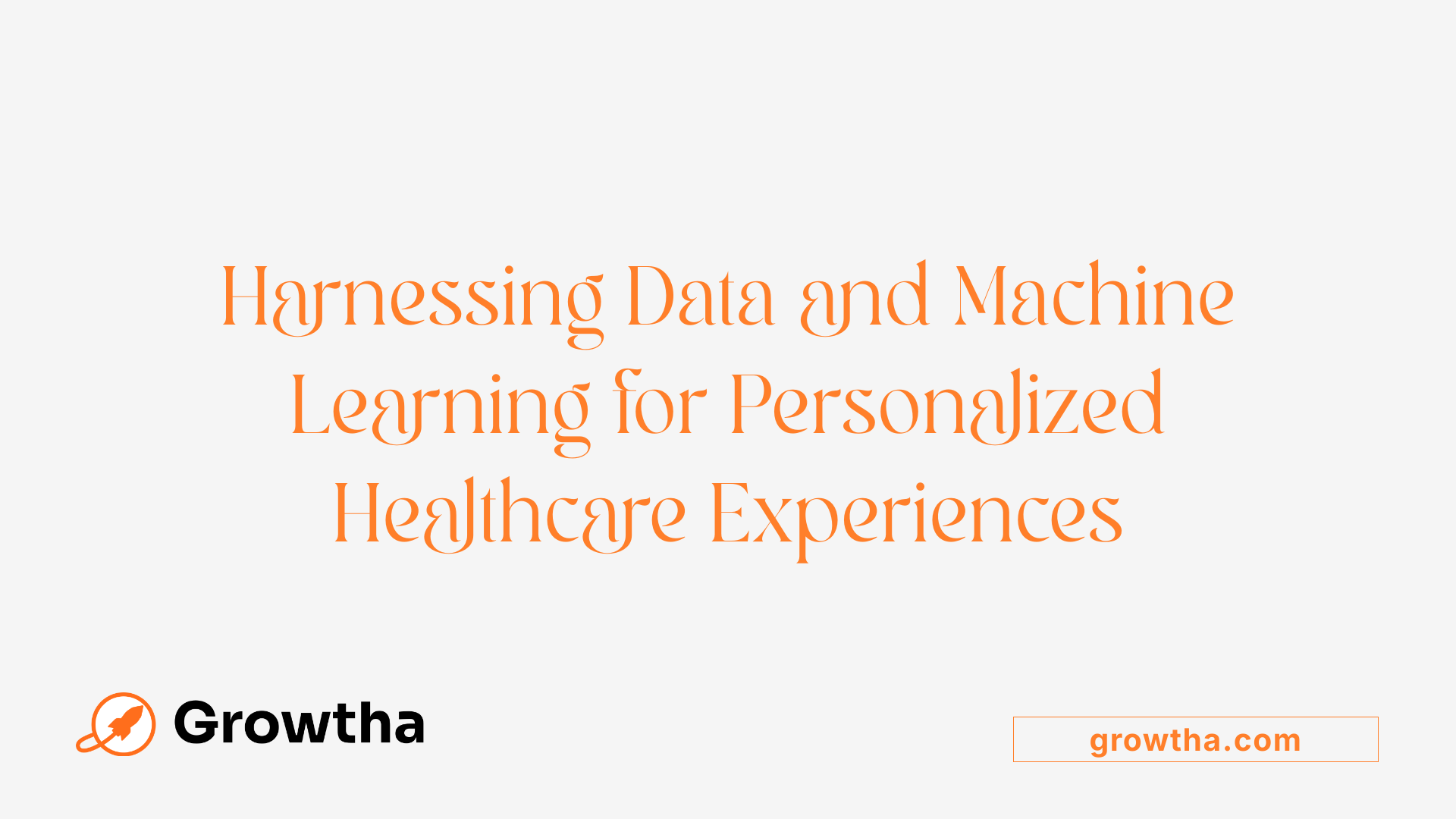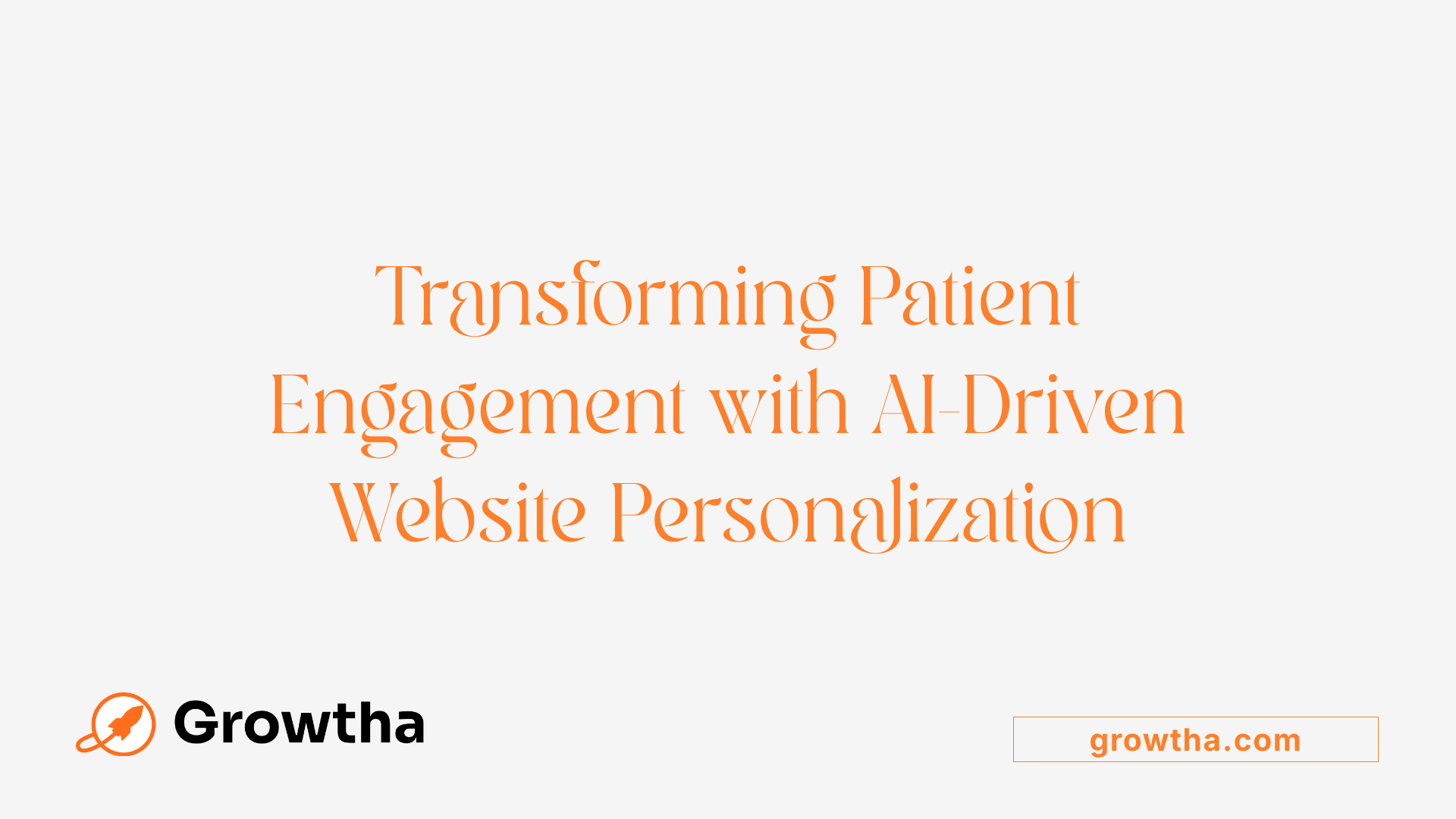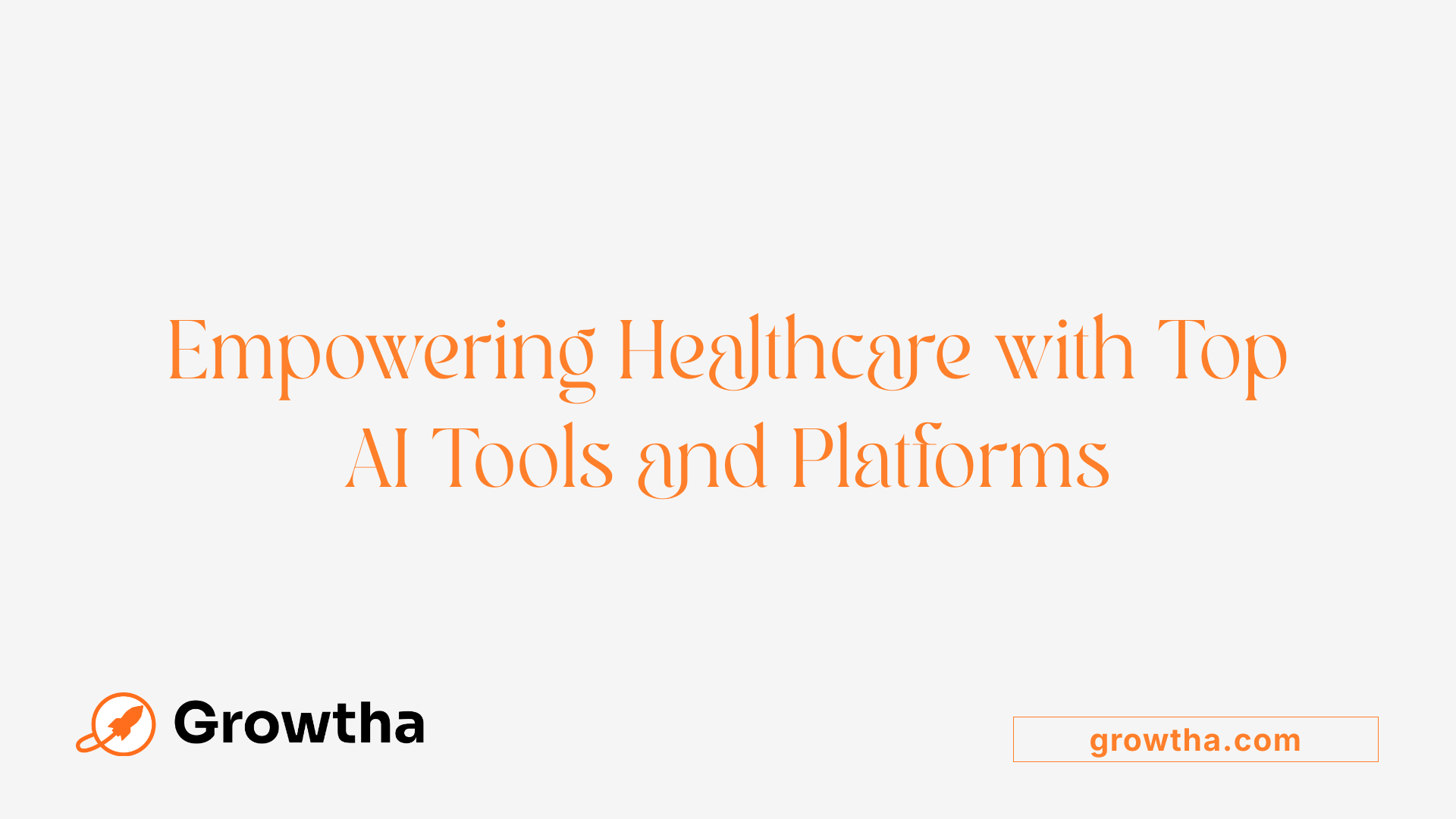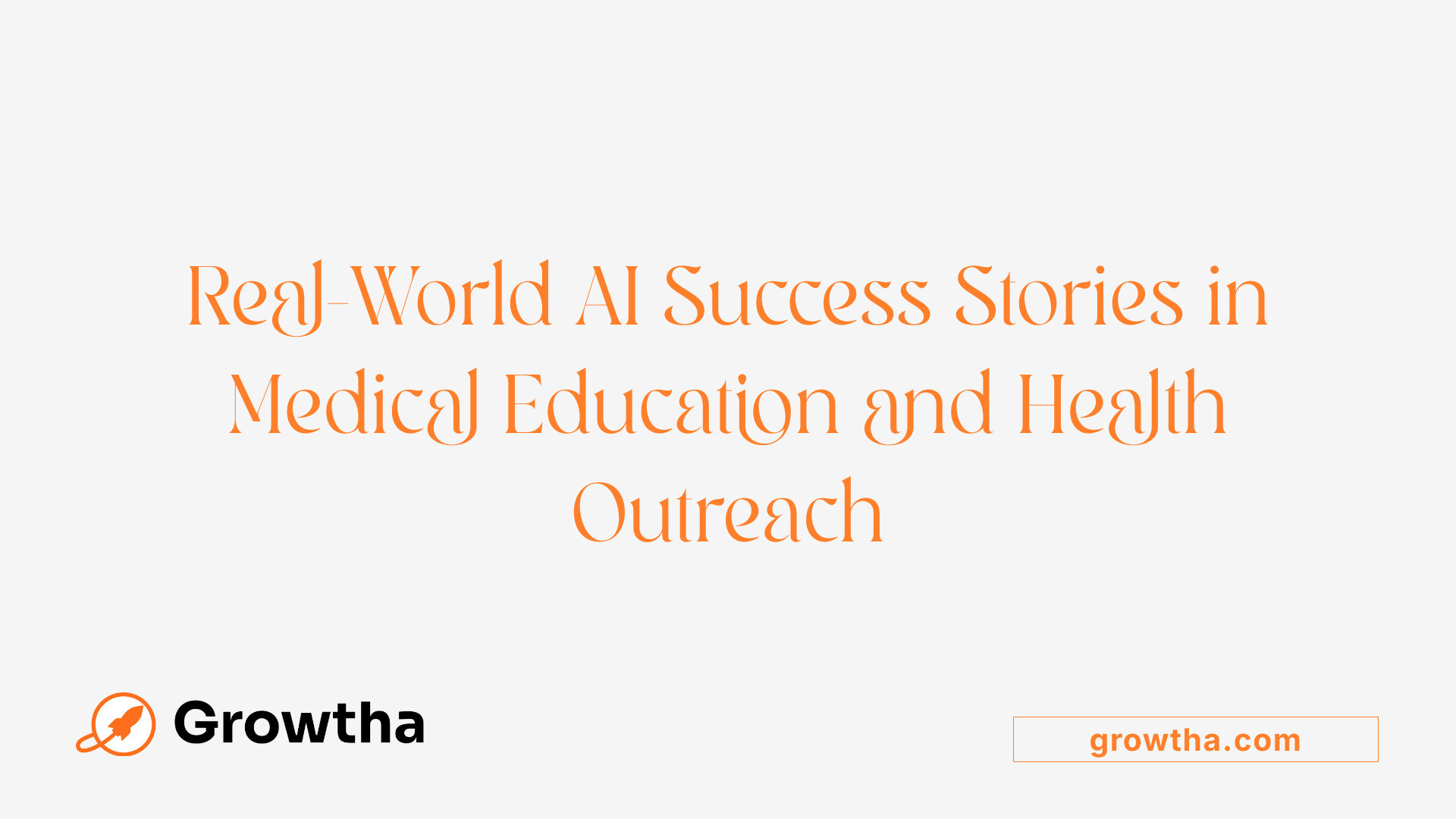Using AI to Personalize Medical Website Content
Revolutionizing Healthcare Web Platforms with Advanced AI Personalization


Using AI to Personalize Medical Website Content
Transforming Medical Websites for Personalized Patient Engagement
The integration of artificial intelligence (AI) and machine learning (ML) into healthcare websites is redefining how medical information is delivered and personalized. By leveraging sophisticated data analysis techniques, healthcare providers can now offer tailored, accurate, and engaging content that meets individual patient needs. This article explores the principles, current practices, benefits, challenges, and future directions of AI-driven personalization in the digital health landscape.
Principles and Methodologies of AI Personalization in Healthcare Websites
 AI-driven personalization in healthcare websites relies heavily on advanced machine learning techniques and comprehensive data processing. At its core, it involves analyzing a blend of structured data—such as electronic health records—and unstructured sources, including social media posts, sensor data from wearables, and web content.
AI-driven personalization in healthcare websites relies heavily on advanced machine learning techniques and comprehensive data processing. At its core, it involves analyzing a blend of structured data—such as electronic health records—and unstructured sources, including social media posts, sensor data from wearables, and web content.
The process begins with collecting and integrating diverse healthcare data to create a holistic view of each patient. Machine learning models, employing supervised learning (where models are trained on labeled data) and unsupervised learning (which identifies patterns without predefined labels), process this information to recognize individual behaviors, traits, and preferences.
These models are continuously refined through ongoing data input, enabling them to produce predictive insights that personalize content delivery effectively. For example, digital phenotyping and personal sensing from devices like smartphones and fitness trackers inform personalized health advice and educational resources. By understanding patient-specific patterns and needs, AI can predict which types of content or interventions are most likely to resonate.
The combination of these principles ensures that healthcare websites can deliver relevant, engaging, and tailored information that supports patient education, self-management, and health behavior change. As a result, personalized digital interactions foster better engagement, higher satisfaction, and ultimately, improved health outcomes.
| Principle/Methodology | Description | Data Type | Purpose |
|---|---|---|---|
| Data integration | Combining structured and unstructured healthcare data | EHR, social media, sensor data | To form a comprehensive patient profile |
| Supervised learning | Training models on labeled datasets to recognize patterns | Medical records, annotated data | To improve prediction accuracy |
| Unsupervised learning | Identifying hidden patterns without pre-labeled data | Unstructured text, sensor outputs | To discover new insights about patient behaviors |
| Digital phenotyping | Using personal device data to understand individual traits | Smartphone, wearable sensor data | To enhance content relevance |
| Continuous model updating | Models iteratively learn from new data input | Real-time data streams | To keep content personalized and accurate |
These methodologies exemplify how AI harnesses vast and varied healthcare data, applying sophisticated algorithms to deliver personalized experiences across medical websites. This approach supports better patient engagement and health management by ensuring that digital content aligns closely with individual needs and preferences.
Current Applications of AI and ML in Healthcare Website Customization
 AI and machine learning are transforming healthcare websites by enabling highly personalized experiences for users. These technologies analyze large volumes of patient data, browsing behaviors, and preferences to recommend relevant health information, educational materials, and resources tailored to individual needs.
AI and machine learning are transforming healthcare websites by enabling highly personalized experiences for users. These technologies analyze large volumes of patient data, browsing behaviors, and preferences to recommend relevant health information, educational materials, and resources tailored to individual needs.
One of the main uses is content recommendation based on user data. For instance, health portals utilize AI to deliver targeted articles, videos, and alerts that resonate with the user's health status or concerns, fostering better engagement and understanding.
AI-powered chatbots and virtual health assistants are also prevalent, providing real-time support and guidance. They can answer common questions, assist in navigating the portal, and even schedule appointments or offer medication reminders, making digital health support accessible round the clock.
Dynamic content generation and adaptive interfaces are crucial in creating intuitive platforms. These features allow websites to update health tips, alerts, and educational content automatically based on user interactions, leading to a more responsive and personalized user experience.
For practical examples, well-known health portals such as the NHS app in England, Amgen Support+, and the Pfizer Clinical Trial Alumni Portal exemplify these applications. These portals leverage AI to tailor health information delivery, improve accessibility, and provide ongoing support, which enhances user engagement and satisfaction.
In summary, AI and ML technologies enable healthcare websites to respond proactively to user needs, creating personalized, efficient, and engaging digital health environments.
Tools and Platforms Supporting AI-Driven Medical Website Personalization
 Various platforms enable healthcare providers to customize and enhance their websites using artificial intelligence. AI website builders like Wix ADI and Bookmak use intelligent algorithms to suggest design and content modifications based on user data, making websites more engaging and relevant.
Various platforms enable healthcare providers to customize and enhance their websites using artificial intelligence. AI website builders like Wix ADI and Bookmak use intelligent algorithms to suggest design and content modifications based on user data, making websites more engaging and relevant.
Many organizations also incorporate AI into their existing content management systems (CMS) such as WordPress or Drupal. These integrated AI tools support dynamic content recommendations, adaptive interfaces, and workflow automation, which collectively improve user experience and facilitate personalized interactions.
For interactive patient support, chatbot solutions powered by AI—like ChatGPT, Woebot, or tailored AI assistants—provide real-time, conversational guidance. These tools can answer common questions, assist with appointment scheduling, and offer educational content relevant to individual patient needs.
To produce multimedia content, healthcare organizations utilize generators such as DALL-E 2, NightCafe, and Lumen5. These tools aid in creating engaging images, videos, and visual aids that resonate with audiences and enhance educational outreach.
In summary, the suite of AI-powered tools and platforms—spanning website builders, CMS integrations, chatbots, and multimedia content generators—empowers healthcare providers to deliver highly personalized, efficient, and engaging digital experiences for patients.
Case Examples of AI in Medical Education and Health Information Dissemination

Are there existing case examples of AI in medical education and health info dissemination?
Yes, AI has been actively integrated into various aspects of healthcare education and information sharing.
One prominent application is in personalized learning resources for healthcare professionals. AI-driven platforms can analyze individual learning styles and knowledge gaps, offering tailored educational modules, such as video summaries of recent research or interactive training simulations. For example, AI tools like ChatGPT can generate concise summaries of complex medical articles, helping clinicians stay updated efficiently.
AI also plays a vital role in diagnostic and risk prediction tools. Algorithms trained on large datasets can identify conditions like diabetic retinopathy or predict patient risks for diseases such as cardiovascular issues. These models assist healthcare professionals in early detection and decision-making, improving patient outcomes.
Furthermore, AI chatbots like Woebot and similar virtual assistants are used in mental health support, providing accessible counseling and behavioral guidance. These bots can engage users empathetically and24/7, fostering better mental health literacy and support.
These technological advancements demonstrate AI’s capacity to enhance health communication, education, and clinical decision support, bridging gaps in knowledge dissemination and patient engagement. The evolving landscape highlights AI’s practical impact in making healthcare more personalized, accessible, and efficient.
Related Search
Searching for "AI applications in medical education and health info dissemination" reveals numerous case studies and recent developments, confirming the expanding influence of AI across healthcare education and information sharing platforms.
Techniques for Effective Personalization and Patient Engagement
How can healthcare providers effectively personalize website content?
Personalizing healthcare website content involves a combination of explicit and implicit strategies. Explicit methods include using geolocation data to present location-specific information, such as nearby clinics or localized health alerts. Persona-based customization helps tailor content according to patient demographics, preferences, and medical history.
Implicit analysis leverages user browsing behaviors, engagement patterns, and content interactions to understand individual interests and needs. Machine learning algorithms analyze this data to identify patterns, allowing the website to dynamically adjust its content and recommendations.
Utilizing predictive analytics and real-time data enhances this process. Predictive models forecast user needs based on current and past interactions, enabling the delivery of relevant, up-to-date information. For example, if a user frequently searches for diabetes management tips, the site can proactively provide tailored educational resources.
Implementing an omnichannel communication approach ensures that personalized messaging remains consistent across all touchpoints—be it website, email, mobile app, or social media. This coordination maintains engagement, builds trust, and improves patient satisfaction. Overall, these combined techniques foster a responsive, user-centered experience that encourages ongoing interaction and better health outcomes.
Impact of AI on Healthcare Marketing and Patient Engagement
What impact does AI have on healthcare marketing and communication?
AI has significantly transformed how healthcare organizations connect with patients and promote their services. By leveraging data analytics, AI enables precise targeting of audiences, ensuring that marketing efforts reach individuals most likely to need specific care or services. It automates various marketing workflows, making processes more efficient and cost-effective.
AI-powered chatbots and conversational agents play a crucial role in enhancing patient engagement. They provide around-the-clock support, answer common questions, and facilitate appointment scheduling, which improves overall patient satisfaction. Personalization is a major strength of AI in this context; tailored educational content and targeted outreach help patients better understand their health and treatment options.
Furthermore, AI supports efforts to improve health literacy and build trust. By delivering relevant, accessible, and easy-to-understand information, AI helps demystify complex healthcare topics, making health decisions easier for patients. This increased support and accessibility foster greater trust in healthcare providers and services.
Ultimately, the use of AI in healthcare marketing leads to higher patient retention, improved engagement, and better health outcomes by creating more responsive, personalized, and trustworthy communication channels.
| Application Area | Description | Benefit |
|---|---|---|
| Audience Targeting | Data analysis to identify and segment target groups | Better reach to interested patients |
| Automated Workflow Optimization | AI-driven campaigns and content delivery | cost savings and efficiency |
| Patient Support via Chatbots | 24/7 support, FAQs, appointment booking | Increased satisfaction and engagement |
| Educational Content Personalization | Tailored health information and updates | Improved health literacy and trust |
| Market Strategies | AI for ad placement and content optimization | Higher campaign effectiveness |
In summary, AI enhances the effectiveness and personalization of healthcare marketing and communication, fostering stronger patient relationships and supporting healthier communities.
Challenges and Ethical Considerations in AI Personalization
What are the main challenges and limitations of implementing AI for healthcare content personalization?
Implementing AI in healthcare content personalization presents several hurdles. First, ensuring the privacy and security of sensitive patient data is paramount, as breaches can lead to loss of trust and legal issues.
Bias in training data is another significant challenge. AI systems trained on unrepresentative or skewed datasets may produce unfair or inaccurate content, potentially worsening disparities among different patient groups.
Maintaining transparency is also complex, especially with advanced algorithms like deep learning, which often operate as 'black boxes.' This opacity can impede trust and understanding of AI-driven decisions.
Regulatory compliance adds another layer of difficulty. AI solutions must adhere to laws like HIPAA, requiring rigorous data protection measures and regular audits.
From an ethical standpoint, efforts must be made to mitigate biases and ensure equitable treatment. Building patient trust depends on transparent practices and responsible AI deployment.
Overcoming these limitations necessitates strong governance frameworks, continuous system monitoring, and human oversight. Regular review by healthcare professionals is essential to validate AI outputs and maintain high standards of care.
Future Trends and Innovations in AI for Medical Websites
What future trends are emerging in AI-enabled medical website content creation?
The landscape of AI in medical websites is rapidly evolving, with several promising trends on the horizon. One significant development is the integration of multimodal AI systems. These advanced models can process diverse types of data, combining imaging, genomic, and clinical information to deliver highly personalized and accurate content.
By incorporating visual data, such as medical images, alongside textual and numerical data, multimodal AI can generate insights and recommendations that are more tailored to individual patient needs. This not only enhances the relevance of the information but also bridges the gap between raw medical data and patient-friendly content.
Another exciting trend is the rise of ambient intelligence and voice-activated virtual assistants. These AI-powered tools aim to create a proactive support environment within medical websites. For instance, patients can interact with voice-based assistants that understand complex medical queries, provide guidance, and even alert healthcare providers if urgent concerns are detected.
These assistants facilitate real-time, conversational engagement, making health information more accessible and personalized. They can remind patients about medication schedules, answer FAQs, or guide users through their health records, ultimately improving user experience and adherence.
Furthermore, regulatory and governance frameworks are expected to advance. To ensure safety, ethical standards, and transparency, new policies will likely be established. These regulations aim to oversee AI algorithms, data privacy, and decision-making processes, fostering trust among users and healthcare providers.
The combined effect of these innovations is transforming digital health platforms into more intuitive, trustworthy, and effective tools. They enable personalized health content that adapts to the user’s evolving needs while maintaining rigorous standards for safety and ethical compliance.
In summary, future AI trends in medical websites include the adoption of sophisticated multimodal models, proactive ambient intelligence, and robust regulatory frameworks. These developments are set to revolutionize how patients access, understand, and engage with health information online, ultimately leading to better health outcomes and patient satisfaction.
| Trend | Description | Impact |
|---|---|---|
| Multimodal AI | Incorporates images, genomic, and clinical data into content | More personalized and precise health advice |
| Ambient Intelligence | Voice-based assistants providing proactive support | Increased engagement and accessibility |
| Regulatory Frameworks | New standards for safety and transparency | Builds user trust and ensures ethical use |
This ongoing evolution indicates a future where medical websites are not just passive repositories of information but dynamic, intelligent platforms that support patients at every step of their healthcare journey.
Harnessing AI for a Patient-Centric Digital Future
AI’s transformative potential in personalizing healthcare web content is vast, promising more engaged, informed, and healthier patient populations. As technology advances, ongoing efforts in ethical governance, transparency, and human-AI collaboration will be essential to realizing its full benefits in a responsible and equitable manner.
References
- Harnessing Machine Learning to Personalize Web-Based Health ...
- Should You Use Artificial Intelligence To Create Medical Content For ...
- Can AI Replace Human Content Writing for Medical Website SEO?
- Tips for Utilizing AI in Your Medical Practice's Marketing - MedVanta
- Harnessing AI to reshape consumer experiences in healthcare
- HCPs want AI to personalize, summarize medical education content
- Medical Marketing With AI: Find The Patients Who Need You Most
- Examining the impact of personalization and carefulness in AI ...







